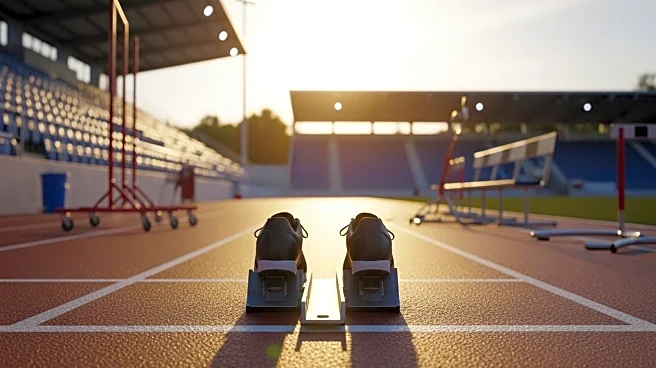What's Happening?
The track and field community is facing significant challenges as it approaches the upcoming World Championships and the 2028 Los Angeles Olympics. A major issue is the cancellation of high-profile events, including a much-anticipated track meet in Los Angeles organized by Michael Johnson. This cancellation is part of a broader trend of disorganization within the sport, exacerbated by a U.S. media deal that has made track events less accessible to the public. Additionally, the Grand Slam Track league, a start-up promising lucrative head-to-head races, has failed to deliver on its financial commitments, leaving many athletes unpaid. This situation has led to frustration among athletes and stakeholders, highlighting the sport's struggle to maintain its prominence and organization.
Why It's Important?
The current disarray in track and field could have significant implications for the sport's future in the United States. With the Los Angeles Olympics on the horizon, there is a pressing need to revitalize interest and organization within the sport. The failure of the Grand Slam Track league to pay athletes undermines trust and could deter future participation from top athletes. Moreover, the shift in media rights from NBC's Peacock to FloTrack, which charges higher subscription fees, may limit the sport's visibility and accessibility to fans. This could further alienate audiences and reduce the sport's appeal, impacting sponsorships and investment in the long term.
What's Next?
As the World Championships commence, there is an opportunity for track and field to regain some momentum. The introduction of the World Athletics Ultimate Championship in Budapest, with significant prize money, could attract top talent and generate interest. However, the sport must address its organizational issues and ensure that athletes are compensated fairly to restore trust. The upcoming Los Angeles Olympics will be a critical moment for track and field to showcase its potential and engage a broader audience. Stakeholders will need to collaborate to create a sustainable model that supports athletes and enhances the sport's visibility.









